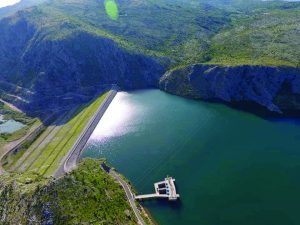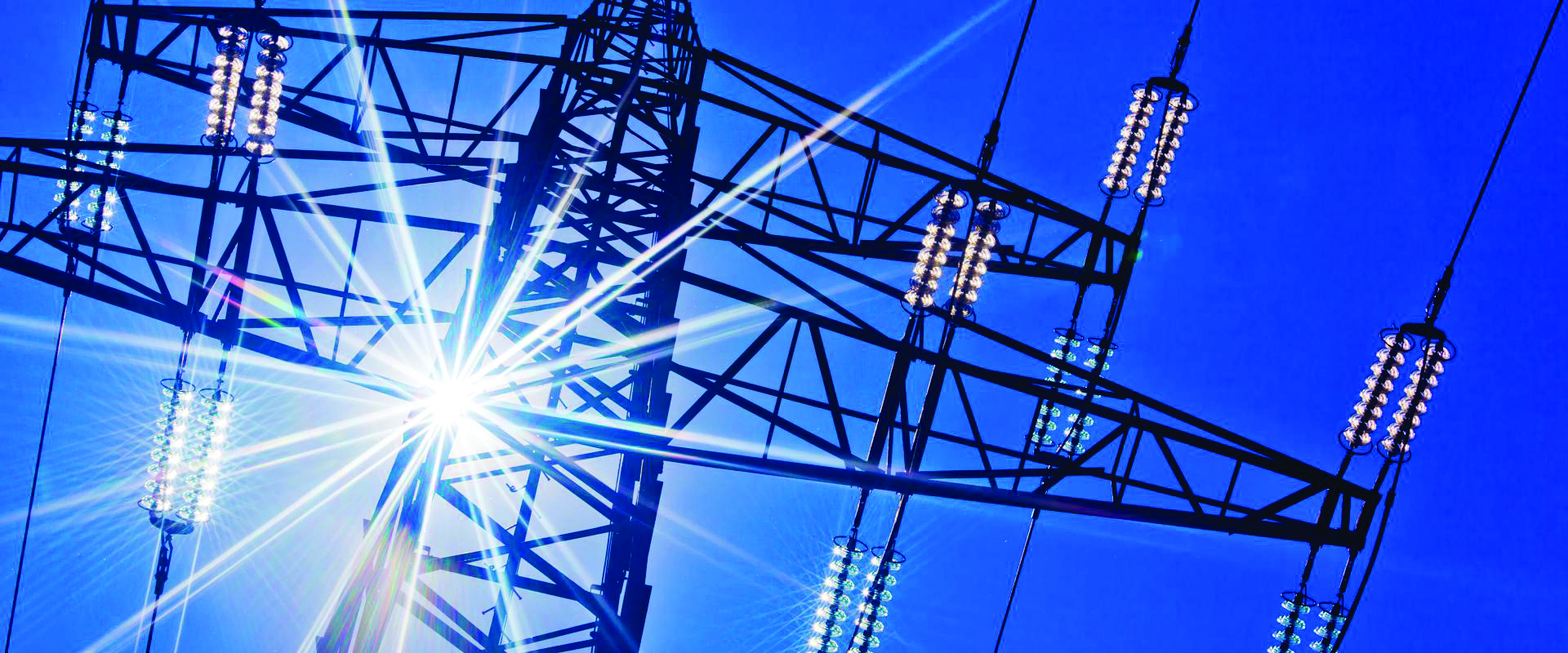Despite the easing of pressure brought about by this crisis, no one seems to have let their guard down. For Albania, the scenario is the standard one. If the vagaries of the weather, also influenced by the El Nino phenomenon (which has been added to the equation this year) will bring rains, improving the water situation, then production will be ensured in cascade. If they are missing, the supply will be supplemented by imports.
Nertila Maho
The end of the second month of autumn found the Albanians with the temperatures of a warm spring. The rains, typical of this season, were rare and it seems that the eyes are on what the November that has just started can bring.
As a country entirely dependent on hydropower sources, rainfall takes on extraordinary importance in conditions where the level in the Drin cascade, the energy heart of the country, has dropped significantly.
The Albanian Electric Corporation has returned to purchases in the free market as a way to ensure the need for energy supply. KESH confirmed for “Monitor” that during this year, mainly in the first 6 months, the supply was based on cascade production. In July-October, they started the purchases combined with the most reduced production in the cascade.
The winter of 2023-2024 creates the idea of a significantly calmer winter than those of two years ago, when the energy crisis started and culminated, alarming most of the globe, but especially Europe. Despite the easing of pressure brought about by this crisis, no one seems to have let their guard down.
For Albania, the scenario is the standard one. If the vagaries of the weather, also influenced by the El Nino phenomenon (which has been added to the equation this year) will bring rains, improving the water situation, then production will be ensured in cascade. If they are missing, the supply will be supplemented by imports.
At least on the stock market, prices remain significantly lower despite the fear of the crisis still hanging over everyone. Europe, whose demand gives a chain effect on prices, has preceded the winter, providing at the beginning of September 90% of gas reserves.
The Russia-Ukraine conflict, which remains an active and influential focus on the markets, was the main impetus for countries such as Germany and France to move quickly to meet needs and take precautions for the winter ahead. A supply crisis is far from materializing but prices remain higher and the subject of discontent.

KESH: Imports in July-October reach 50 million euros
The year 2023 is considered a good year in terms of water. The abundant production enabled KESH, in the first part of the year, to ensure the supply in the country, to sell several tens of millions of euros on the market, as well as to deposit a quantity of energy in Kosovo according to the agreements.
As the imports have already started, they are calculated at 50.2 million euros in the July-October period. This value is almost 10 times lower than the cost of the Corporation’s imports in 2022, when prices touched insane levels of 1047 euros/MWh at the end of August.
The total cost of imports is expected to be seen only at the end of the year and until then, nothing is certain except that with the current conditions in the stock market, regardless of the amount that will be imported, the cost will not be far behind in relation to the previous year .
In July-October, KESH imported 458 thousand MWh of energy at an average price of 109.71 euros/MWh. Regarding deposits, during this year the Corporation opened several procedures that did not in all cases end with the signing of a contract. Only with the Electricity Corporation of Kosovo, KESH had a deposit that, according to the official data reported, reached 67 thousand MWh.
Dimri, Secretariat: Albania will face energy supply risks
The Western Balkans, which includes Albania, may face the same risks this winter that they experienced earlier related to energy supply. A report of the Energy Community estimates that the Balkan countries have had good progress in some aspects of the sector, but the challenges ahead are not few.
In a special subdivision, entitled “Key challenges ahead”, four points are listed, which are valid for the Balkans, including Albania. The first challenge analyzes the winter before us.
“Looking ahead to the winter of 2023/24, the Contracting Parties in the Western Balkans will face risks that threaten the security of their electricity supply. Stability will depend on factors such as electricity consumption, especially during cold periods, hydrological conditions (possible imbalance in countries such as Albania, Bosnia and Herzegovina, Montenegro, North Macedonia and Serbia if the hydrology is dry) , and the availability of existing thermal capacities to ensure high availability and reduce risk”, the report states.
The second challenge is diversification, where almost all countries have committed to investments in potential capacities that are being installed, but it is estimated that it will take 2-3 years to reach a new diversification panorama.
“Energy Community Contracting Parties continue to demonstrate reduced vulnerability and resilience to extreme scenarios, highlighting the urgency of accelerating the energy transition and decarbonisation, integrating more renewable energy.
High investor interest, reaching about 20 GW in Serbia, about 7 GW in Bosnia and Herzegovina, over 4 GW in North Macedonia and gigawatt-scale investments in Albania and Montenegro, suggest the possibility of rapid capacity development ( 2-3 years).
However, the obstacles related to the procedures of permits, connection to the grid and balancing of the energy system, due to the limited resources of flexibility, must be urgently addressed”, – it is stated in point 2.
In the third point, to overcome these challenges, the Secretariat recommends the acceleration of the integration of renewable sources, the creation of electricity liquidity markets (especially intraday and balancing markets), the increase of cross-border exchanges and the approximation of electricity prices. retail electricity at wholesale rates, providing the necessary support to vulnerable consumers, especially women, children and minorities, who are most vulnerable to energy poverty.
“Energy efficiency measures are also recommended for medium-term risk reduction, with the support of the Secretariat. Full opening of the electricity market, coupling, participation in Emissions Trading Systems (ETS) to facilitate the phase-out of coal, integration of renewables and regional cooperation remain key actions for sustainable energy systems and risk mitigation.” , – underlines the Secretariat.
The last risk is related to gas, which, like last year, is also seen as a problem this winter, at least for countries that have a wide use, of which Albania is not a part.
Source: Monitor


